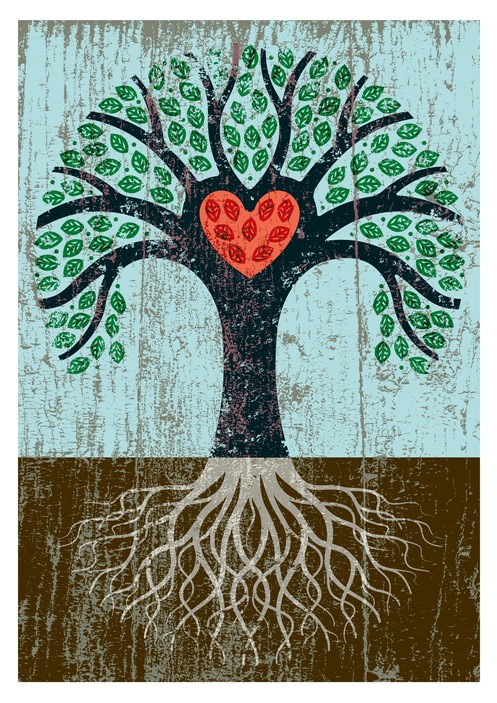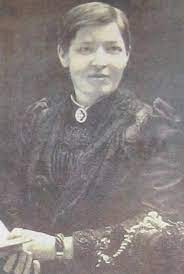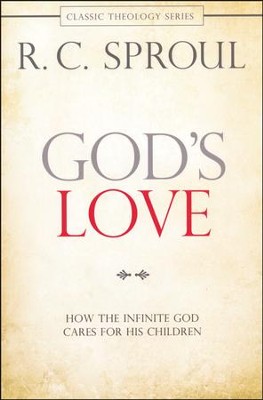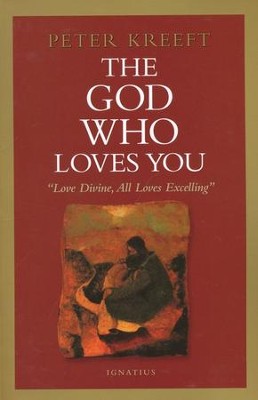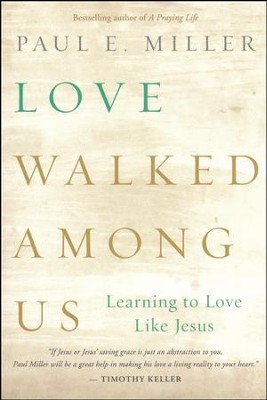Back to series
Being a Beloved Child of God
This month we encourage you to think about the identity of the Church as God's beloved and chosen through Christ's sacrifice which brings us into His presence. More than a mother loves her children, our God deeply cares for us. Our prayer is that these resources help you wherever you are in your walk with Christ, and can bring a deeper understanding and sense of peace and joy to you throughout this month.
See what kind of love the Father has given to us, that we should be called children of God; and so we are.
-1 John 3:1a (ESV)
Broadcast Talks
Every generation has challenges, both cultural and theological. There are three challenges we’re facing to pass our faith on to the next generation. Josh McDowell will touch on these challenges in this issue of Broadcast Talks.
Is Christianity oppressive to women? This question is very important and really relevant in our cultural context today. Amy Orr-Ewing addresses the implications of Christianity for women in this issue of Broadcast Talks.
Knowing and Doing Articles
I just don’t love her anymore.” Identical words uttered on separate occasions by two men, one married to his wife for only four months, the other married to his wife for over fifty years. That may sound bizarre, but it’s quite tragically true. Both men said that they no longer felt anything for their wives, and that they weren’t getting anything out of the relationship ...
That was the introduction to my first year as a pastor. It was quite a shock, especially because both men were professing Christians. Wouldn’t their professed love for Jesus make a difference in their other relationships?
Though we may deny the commonly held opposition between the wrathful, judging God of the Old Testament and the gracious, loving God of the New Testament, we may still be guilty of propagating it by neglecting the Old Testament’s own witness to God’s character, and especially to his grace...
We say ‘God is love,’ but do we really understand how powerful those three little words are? “Love’s as warm as tears,” wrote C. S. Lewis, “love is tears.” And so begins one of the most important poems I’ve ever read. I love it, not because it’s well known or because Lewis is such a popular figure in contemporary Christian thought, but because it reminds me of my wedding...
As I was reading a daily devotional and studying this Scripture, I was distracted by thoughts of an upcoming meeting. I felt led to meditate on what it meant to have a childlike faith and how this might apply to me at this stage in my life and the people with whom I work.
Making a purchase a few years ago in a bookstore in St. Andrews, Scotland, I was given a ten-pound note as part of my change. I was amazed and pleased to see the face of Mary Slessor on the front and a map of her mission station in Calabar, now eastern Nigeria, on the back of the note...
A poem about the nature of God's love for us by William Cowper
Augustine wrote his Confessions when he was about forty-three years old, after he had become bishop of Hippo (in modern-day Algeria). In that autobiographical account he tells the story of his first thirty-three years—his birth, childhood, rebellious youth, ambition, travel to Rome and Milan, conversion, his mother’s joining him in Italy, their time together in Cassiciacum, their return journey south to North Africa, and his mother’s death en route at Ostia on the Tiber. Peter Brown writes, “What Augustine remembered in the Confessions was his inner life; and this inner life is dominated by one figure—his mother...
To be a gifted gardener is to be an artist of the earth and to be a gifted mentor is to be an artist of the soul. In fact, gardening is an apt metaphor for mentoring. The true gardener sees beauty before it’s visible, gets her hands dirty, and faithfully weeds, prunes, and waters. In awe, she recognizes that God causes the growth...
There is a problem in the life of holiness that for many does not arise at all, for some emerges intermittently, but for a certain number—more, I suspect, than ever acknowledge it in any public way—is virtually lifelong. It is the problem of felt abandonment by God, the Father, the Son, and the Holy Spirit, within the frame of full commitment to God...
Seeing the time is so far spent, we will take no more in hand at this time than this one sentence; for it will be enough for us to consider this well, and to bear it away with us. “This I command unto you, that ye love one another.” Our Savior himself spake these words at His last supper: it was the last sermon that He made unto His disciples before His departure; it is a very long sermon.
Reflections
Having a godly family is (or should be) the goal of every Christian couple. However, this is neither a simple nor an easy goal to achieve. C.S. Lewis gives some wise, much-needed advice to all who desire a godly family life.
When people hear that God loves them, they may assume this means He is content with the way they are. As C.S. Lewis explains in The Problem of Pain, however, the opposite is true...
In his book, The Four Loves, Lewis describes “Storge” or Affection Love that is typically displayed when someone is caring for someone else – a mother for her child; a nurse for her patient; a professor teaching his student. While it has many positive attributes, Lewis warns us that this kind of love can go sour...
God could have made us all the same. But he didn’t! Trillia Newbell writes about this very good idea for children and adults with depth, clarity, and winsomeness.
Many Christians assume that discipleship begins with adults. But Jared Kennedy has a much bigger (and more Biblical) vision for discipleship that includes and even prioritizes discipling children.
God’s word tells us that, as believers, we’re “seated with Christ.” And we’re “sent.” What do those things mean? And how do they weave together?
It’s one thing to have a right standing before God. That’s what Jesus purchased for us at the cross. But it’s another thing to enjoy that new relationship.
Jesus is off limits for a lot of families and friends—or at least that’s how it appears sometimes. Why does sharing the good news with a stranger often feel less frightening than telling those you love most?
CSLI Audio Resources
Prayer can at times be exhilarating, and at times can be daunting. On this topic of prayer, Paul Miller, executive director of Seeing Jesus, shares about what it looks like to being like a child in prayer.
The Bible tells us that honoring our parents, our fathers and mothers, is of such great importance that it is among the Ten Commandments. But what does it look like to honor one's parents? In this audio lecture, Klaus Bockmuehl shares about the topic of honoring one's parents.
Family is one of the most important communities we are a part of, and as of the last several years, the values of family systems have been under attack. In this audio lecture, Myron Ausburger shares about the pressing issues of our time in regards to family.
Recommended Books
Love has come to mean many things. It's used to describe emotions. It's the glue for relationships. It frames countless stories.
And the greatest of these stories opens before time began and echoes throughout eternity. It's the story of God's unrelenting, overwhelming love for His people. Yet the truth of love is even more majestic, more staggering, and more extraordinary than we can understand: God doesn't just love us; He is love.
God's love. This is the subject of Peter Kreeft's imaginative and thoughtful book. With unusual clarity, Kreeft points out that the man or woman who begins to glimpse the God who is Creator, Redeemer, and Lover of our souls, will never be the same. He describes Scripture as God's love story and then tells why divine love is the answer to our deepest problems and the fulfillment of our deepest desires.
Jesus was love personified---compassionate, honest, humble, powerful. How did he do it? And how can we learn to love as he did? Weaving Gospel stories with experiences from his own life, Miller explores how to be honest without judging, depend on God, let love be energized by faith, embrace the way of humility, and more.
Jonathan Edwards is considered by many historians to be one of the greatest intellects of his age. Even today, Edwards's sermons and writings challenge the minds and inflame the hearts of Christians everywhere. The sermons included in Altogether Lovely reveal Jonathan Edwards's deep affection for the glory and excellency of Jesus Christ.
How did the Parable of the Prodigal Son, possibly Christ's best-known parable, get its name? It could easily have been called the Parable of the Waiting Father. Jesus told the story to illustrate the joy which there is in heaven over one sinner who repents, and so he spoke of a wanderer. But to over-emphasize that aspect of the story would be a mistake. The joy in heaven is joy in the presence of the angels, not the angel's joy. It is the joy of God as his amazing love welcomes the wanderer home.
In The God Who Loves, Pastor John MacArthur argues against two polar views of God--the sentimental grandfather whose doting love ignores correction or punishment, or God as an angry tyrant who rules by threats. Both of these images paint a distorted picture and confuse the issue of understanding God's love. By looking specifically at the epistle of 1 John, and sharing stories of real people interacting with divine love, MacArthur fleshes out the doctrine of God's love to bring clarity and encouragement to believers.
Categories
Speakers

C.S. Lewis Institute
Author
Team Members
C.S. Lewis Institute
Author
C.S. Lewis Institute, in the legacy of C.S. Lewis, works to develop wholehearted disciples of Jesus Christ who will articulate, defend, share, and live their faith in personal and public life. Founded in 1976 by Dr. James Houston and James R. Hiskey, the Institute provides leading teachers who address important issues of the day from the perspective of Biblical orthodoxy, while also providing discipleship for individuals in small groups.





